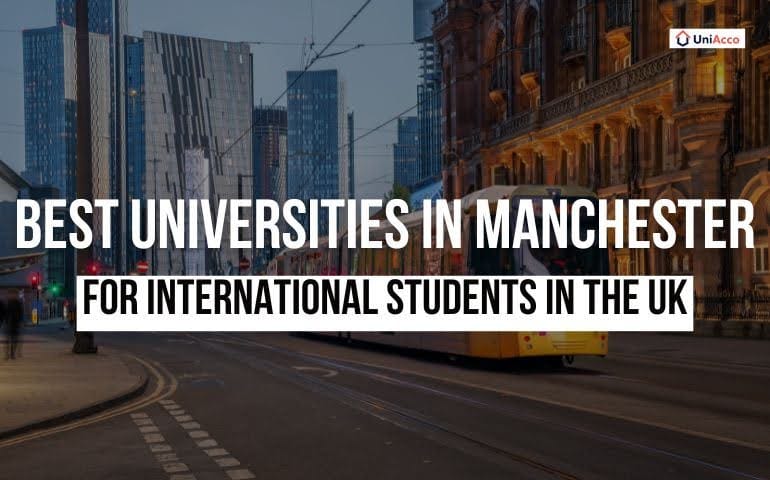Choosing between the University of Oxford and the University of Cambridge is a decision that has long captivated students. Both universities stand as pillars of British higher education, recognised for their history, academic achievement, and global reputation. The question “Oxford vs Cambridge: which is better?” remains as relevant in 2025 as ever. In this guide, we compare the two iconic institutions across multiple areas – rankings, subject strengths, admissions, costs, scholarships, and more – so you can make an informed decision about which uni is better: Oxford or Cambridge.
Oxford vs Cambridge: Comparative Overview
The University of Oxford, situated in Oxfordshire, dates back to the 11th century and is the oldest English-speaking university in the world. Cambridge, established in the early 13th century, is situated in the heart of Cambridgeshire and is renowned for its cutting-edge research and innovation. At first glance, both may seem similar; yet, their traditions, architecture, and academic frameworks reveal notable differences.
Below is a comparative distinction table capturing the essentials for 2025:
| Feature | University of Oxford | University of Cambridge |
| Founding Year | 1096 (documented teaching) | 1209 |
| Location | Oxford, Oxfordshire | Cambridge, Cambridgeshire |
| Number of Colleges | 39 | 31 |
| 2026 QS World Rank | 4 | 6 |
| Number of Students | ~26,500 | ~24,700 |
| International Students % | 45% | 42% |
| Academic Calendar | 3 terms/year (Michaelmas, Hilary, Trinity) | 3 terms/year (Michaelmas, Lent, Easter) |
| Student-City Life | Historic, cosmopolitan, bustling | Picturesque, quieter, student-focused |
| Entry Difficulty | Extremely Competitive | Extremely Competitive |
| Notable Alumni* | 30+ UK PMs, world leaders, Nobelists | Pioneers of science, literature, royals |
Oxford vs Cambridge: Comparing Global Rankings
Both Oxford and Cambridge regularly feature near the top of global university rankings.
| Ranking Body | Oxford (2026) | Cambridge (2026) |
| QS World | #4 | #6 |
| Times Higher Education | #1 (2025 data) | #3 (2025 data) |
| The Complete University Guide UK | #2 (2026) | #1 (2026) |
| US News Best Global | #4 | #8 |
| ARWU (Shanghai) | #6 | #3 |
Both universities are powerhouses, but Oxford edges ahead marginally in global university rankings for 2025–26.
University of Oxford vs Cambridge: Academic Strengths Compared
The difference between Oxford and Cambridge is most notable in certain subject areas:
Oxford excels in humanities, law, politics, philosophy, literature, medicine, and social sciences. Its medical school is ranked among the top globally, and it is world-renowned for its PPE (Philosophy, Politics, and Economics) program. Law, history, and English literature have produced numerous global leaders and thinkers.
Cambridge is particularly strong in STEM (science, technology, engineering, mathematics). Mathematics, physics, engineering, astronomy, and computer science at Cambridge are legendary, with alumni like Isaac Newton, Alan Turing, and Stephen Hawking. Its Natural Sciences Tripos is recognised internationally.
| Subject Area | Oxford Strengths | Cambridge Strengths |
| Humanities | Outstanding | Very strong |
| STEM | Very strong | Outstanding (esp. Maths, Science) |
| Social Sciences | World-leading | World-leading |
| Engineering & Technology | Leading | Leading (especially research) |
| Medicine & Life Sciences | Top-rated Medical School | Premier research and teaching |
| Arts & Literature | Traditionally strong | Highly esteemed |
Oxford vs Cambridge: Course Offerings Compared
| Course Name | Oxford Ranking (QS) | Cambridge Ranking (QS) |
| Accounting & Finance | 4th | 6th |
| Archaeology | 2nd | 1st |
| Business & Management | 9th | 8th |
| Economics | 8th | 10th |
| English Language & Literature | 1st | 2nd |
| Geography | 1st | 3rd |
| Mathematics | 6th | 3rd |
| Medicine | 2nd | 4th |
| Physics & Astronomy | 5th | 4th |
| Psychology | 3rd | 4th |
The breadth of courses is impressive at both universities. Oxford offers over 350 undergraduate and graduate programmes, spanning traditional disciplines and emerging fields. Cambridge’s Tripos system enables students to specialise later in their studies, offering flexibility and breadth, especially among the sciences.
- Oxford: Noted for classics, law, PPE, medicine, philosophy, computer science, and modern languages.
- Cambridge: Known for mathematics (the Mathematical Tripos), engineering, natural sciences, computer science, and architecture.
Both offer joint honours, language study, and integrated master’s degrees. The collegiate system means that some subjects are only available at certain colleges, so applicants should carefully review each college’s offerings.
University of Oxford vs Cambridge: Entry Requirements Compared
Admission to either university is highly competitive and requires academic excellence, critical thinking skills, and commitment outside the classroom.
| Admission Component | University of Oxford | University of Cambridge |
| Typical A-Level Offer | A* A A (or equivalent IB 38-40 points) | A* A* A or A* A A (or equivalent IB 40-42 points) |
| International Baccalaureate (IB) | 38-40 points, including 666 at Higher Level (HL) | 40-42 points, including 776 at Higher Level (HL) |
| Entrance Tests | Subject-specific tests such as MAT, TSA, LNAT, BMAT (varies by course) | Subject-specific tests such as STEP, CPSQ |
| Interviews | Rigorous academic interviews; may interview at up to two colleges | Academic interviews; usually one college; focus on problem-solving and knowledge |
| Personal Statement & References | Strong emphasis on academic achievements, motivation, and extracurriculars | Considered seriously alongside academic record and tests |
| English Language Requirements | IELTS 7.0+ or equivalent for international students | IELTS 7.0+ or equivalent for international students |
| Academic Transcripts | Required, including predicted grades | Required, including predicted grades |
The core difference in admissions lies in the interview format (Oxford may interview at up to two colleges, Cambridge usually just one) and the admissions tests used, but final selection at both universities focuses heavily on academic achievement and potential.
Oxford vs Cambridge: Tuition Fees and Living Expenses
Both universities charge similar tuition fees to UK and international students, but the total cost of attending varies depending on lifestyle choices and accommodation types.
Estimated Annual Expenses (2025–26):
| Expense | Oxford (GBP) | Cambridge (GBP) |
| Tuition (Undergrad) | £28,950–£39,010 (Int’l) | £27,510–£39,119 (Int’l) |
| Tuition (Home) | £9,250 | £9,250 |
| Living Costs | £1,345–£1,955/month | £1,250–£1,850/month |
| Total Yearly (Int’l) | £43,000–£62,000 | £41,000–£61,000 |
Oxford’s city is slightly larger and can be more expensive for private accommodation, while Cambridge has a more contained, student-focused vibe with modest price differences. Both university cities offer college accommodation, which is often more affordable and social than living privately. Costs for books, leisure, and food are similar.
Oxford or Cambridge: Which Offers Better Scholarships?
Oxford Scholarships
Rhodes Scholarships
This is arguably the world’s most prestigious international scholarship programme. Rhodes Scholarships are awarded to exceptional postgraduate applicants (usually Master’s or DPhil/PhD) from select countries including India, the USA, Australia, and several African nations. The scholarship covers full tuition, living stipends, and travel costs. Selection is based on academic distinction, leadership, and commitment to service. Rhodes Scholars join a lifelong network of leaders in all fields.
Clarendon Fund Scholarships
Open to all postgraduate students (both UK and international), the Clarendon Fund provides full tuition and generous living stipends based on academic merit. Approximately 200 Clarendon Scholarships are awarded yearly, making it Oxford’s largest postgraduate award. There is no separate application – qualifying applicants are automatically considered if they apply by the relevant course deadline.
Reach Oxford Scholarships
Intended for undergraduate applicants from developing or low-income countries (outside the UK/EU) who are unable to study at home or afford to study elsewhere, these awards cover tuition fees, a grant towards living costs, and return airfare. Selection emphasises academic excellence and financial need.
Simon & June Li Undergraduate Scholarships
For outstanding students from developing countries (mainly in Asia), these scholarships cover course fees and a grant for living expenses. They aim to support students whose education might otherwise be unaffordable.
Oxford-Weidenfeld and Hoffmann Scholarships
Postgraduate applicants (mainly 1-year master’s) from transition or emerging economies can apply. The scholarship covers 100% of tuition and a living cost grant and requires scholars to commit to returning to their home countries to drive positive change.
Cambridge Scholarships
Gates Cambridge Scholarships
Funded by the Bill and Melinda Gates Foundation, these are among the most competitive postgraduate scholarships in the world. Open to international (non-UK) applicants for full-time postgraduate study at Cambridge, they cover all tuition, a generous allowance for living costs, airfare, and even discretionary funding for conferences or family. Selection is based on academic excellence, leadership potential, and a commitment to improving the lives of others.
Cambridge International Scholarships
Awarded to the highest-ranking international students pursuing research postgraduate degrees, these scholarships usually cover full fees and a maintenance allowance. They are open to all nationalities and are awarded strictly based on academic merit.
Cambridge Trust Scholarships
The Cambridge Trust oversees numerous scholarships funded through university endowments, donations, and partnerships for both undergraduate and postgraduate international students. Awards vary by country, course, and college, including partial and full-fee waivers.
Aker Cambridge Scholarship
This fully funded scholarship supports Norwegian students or those with strong ties to Norway pursuing Master’s or PhD degrees at Cambridge (and other partner institutions globally). Established in 2015 by the Anne Grete Eidsvig and Kjell Inge Røkke Charitable Foundation in cooperation with Aker ASA, it aims to enable talented Norwegians to gain world-class education regardless of personal finances. The award covers tuition and living costs. Applicants must apply directly to Aker and separately for admission to the University of Cambridge.
Beit Cambridge Scholarship
The Beit Scholarship is designed for Master’s level students from Zambia, Zimbabwe, or Malawi, providing financial support primarily for tuition and living expenses. This award supports candidates committed to academic excellence who are ordinarily resident in these countries, facilitating access to Cambridge’s top-tier graduate programmes.
Oxford vs Cambridge: City Comparison for Students
- Oxford is a larger city with a vibrant, cosmopolitan atmosphere and an array of historic sites, cultural venues, parks, and restaurants. The river, museums, and college buildings add a unique charm. Its proximity to London (circa 1 hour by train) is a draw for many students.
- Cambridge has a picturesque, tranquil character centred on the River Cam and its famous punt rides, with ancient buildings and college greens. The city is smaller but entirely geared towards student life, fostering a tight-knit community with easy access to all university facilities. Cambridge is also about 1 hour from London by train.
The primary difference between Oxford and Cambridge, in terms of location, lies in the contrast between city size, nightlife, and cultural buzz versus intimacy, quietness, and a student-focused atmosphere.
Difference Between Oxford and Cambridge: Alumni Achievements
The alumni networks at both universities are vast and influential. Here are some of their most iconic graduates:
| Category | Oxford University | Cambridge University |
| World Leaders | – 30+ British Prime Ministers: Theresa May, Tony Blair, Margaret Thatcher – Bill Clinton (42nd US President) – Indira Gandhi – Aung San Suu Kyi | – King Charles III – King George VI – Amartya Sen (Nobel Laureate in Economics) |
| Science & Innovation | – Robert Hooke (scientist) – Dorothy Hodgkin (chemist, Nobel Laureate) – Edwin Hubble (astronomer) – Sir Peter Medawar (physiologist) | – Sir Isaac Newton – Charles Darwin – Francis Crick & James Watson (discovery of DNA) – Alan Turing – Sir Martin Evans |
| Writers & Thinkers | – Oscar Wilde – J.R.R. Tolkien – T.S. Eliot – Lewis Carroll – William Golding | – Sylvia Plath – Stephen Hawking (also Oxford alumnus) |
| Arts & Media | – Dame Emma Watson | – Sir David Attenborough – Sir Ian McKellen – Rachel Weisz |
Each university’s alumni community opens doors to professional networks, career mentoring, and international influence.
Which One is Better – Oxford or Cambridge?
There is no simple answer to “which university is better: Oxford or Cambridge?”. The answer depends on your subject, preferred environment, and career goals. In 2025, Oxford edges ahead in overall global rankings and in humanities disciplines, while Cambridge remains unrivalled in STEM, particularly in mathematics and engineering.
- Choose Oxford if: You are drawn to the vibrancy of city life, aspire towards politics, law, humanities, or medical studies, and enjoy rich traditions and debate.
- Choose Cambridge if: You are passionate about pure and applied sciences, engineering, or mathematics, appreciate a quieter and closer-knit student city, or want access to one of the world’s most innovative STEM faculties.
Ultimately, both institutions prepare students for success in an international context. The difference between Oxford and Cambridge lies not just in rankings but in personal fit, extracurricular culture, and your intended area of study.
No matter where you end up going, UniAcco’s student accommodation is where your dreams take you. Explore stays unique to you, close to your university, be it Oxford or Cambridge.
Also read: Oxford Vs Harvard: Which Is The Better Choice For You?
FAQs
1. Which is harder to get into: the University of Oxford or the University of Cambridge?
Both have very competitive admissions; acceptance rates and requirements vary by course, but the difference is minor.
2. Which university is better for science and engineering?
Cambridge tends to have a stronger global reputation in STEM subjects, particularly maths and engineering.
3. Is life in Oxford more expensive than in Cambridge?
Generally, Oxford has slightly higher living costs due to city size and demand.
4. Can I apply to both Oxford and Cambridge in the same year?
No, you may only apply to one per admissions cycle through UCAS.
5. Do employers value an Oxford degree more than a Cambridge degree?
Both are equally respected by employers worldwide; the “Oxbridge” brand opens doors in every sector















0 Comments